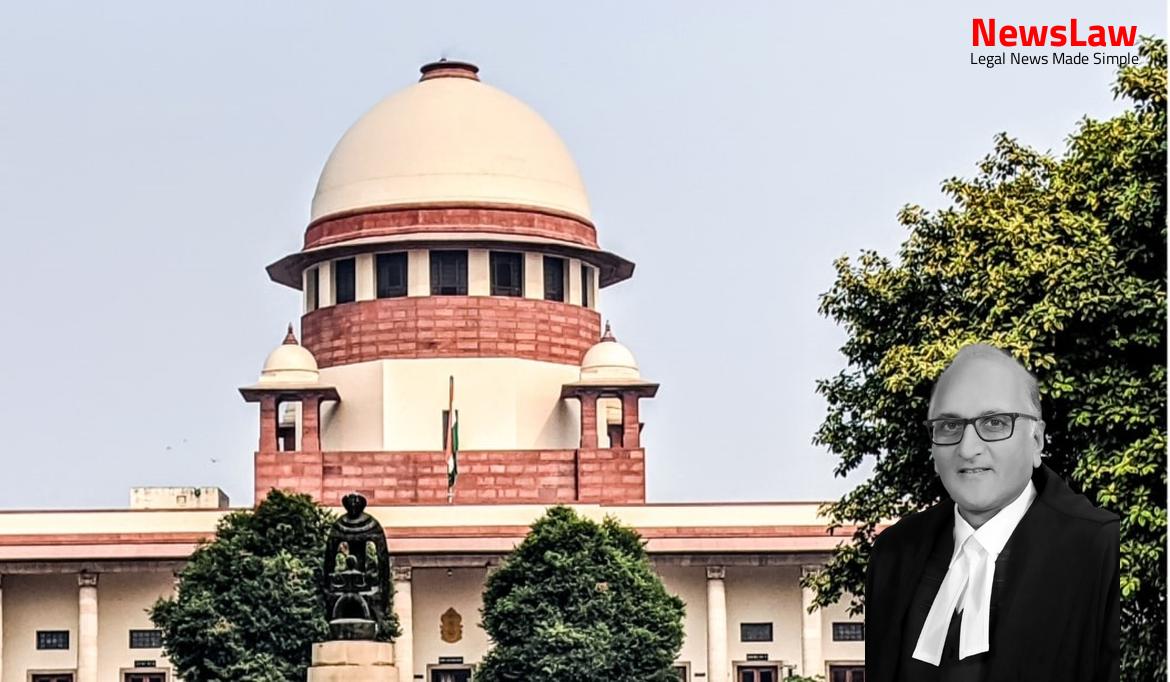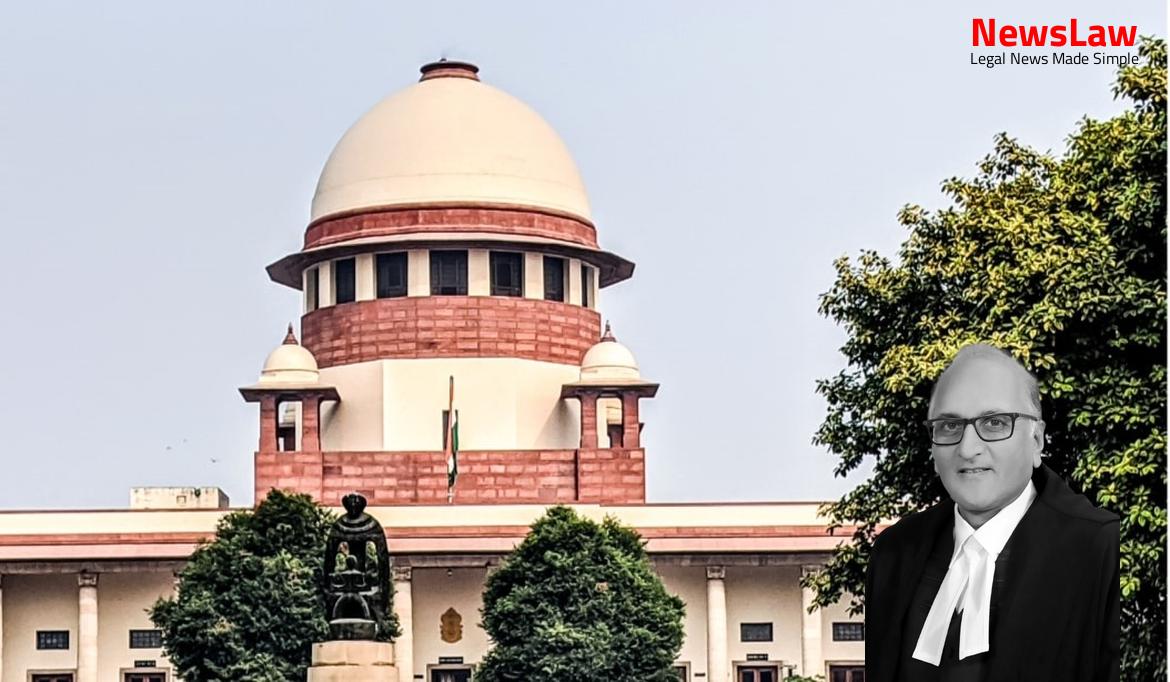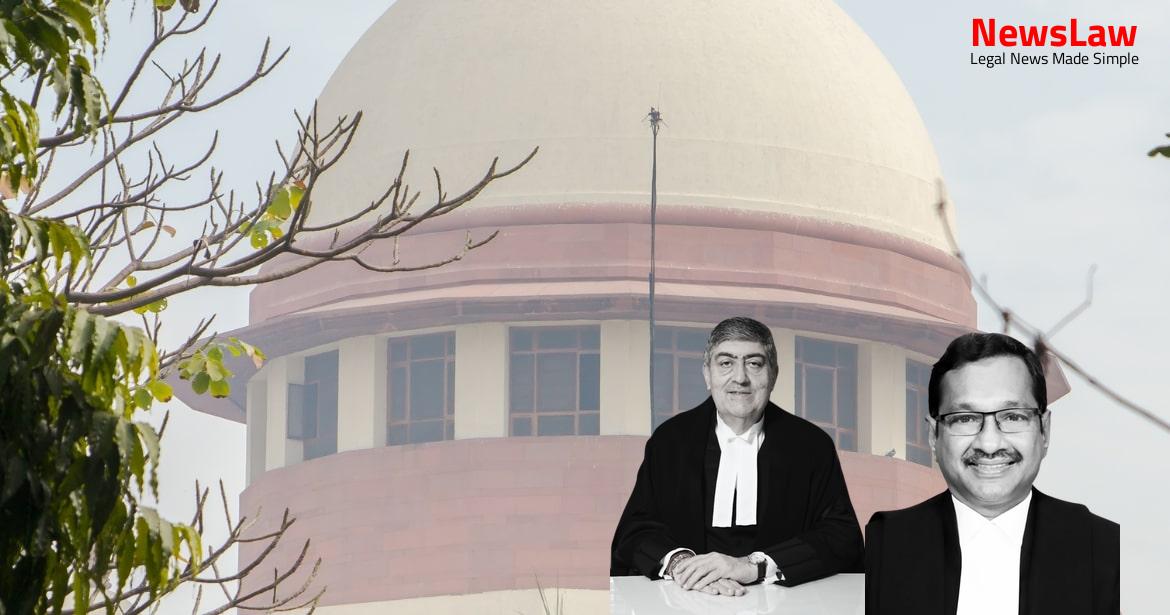Dive into a detailed legal analysis of a case involving the interpretation of the Benami Transactions Act. The court’s meticulous examination of the six crucial factors in determining a benami transaction sheds light on the complexities of such cases. Follow the journey of evidentiary burden and the significance of fiduciary relationships in establishing ownership. Stay tuned for a comprehensive overview of the court’s thorough legal scrutiny.
Facts
- Laxmi Prasad purchased properties in the names of his sons, claiming it was for their proper maintenance and education.
- Allegations were made that the defendants, who were minors at the time, did not have the capacity to purchase or alienate the properties.
- The trial court dealt with the issue of whether the first plaintiff was the sole owner of the properties and if the first defendant had the right to sell the disputed land.
- An interim injunction was issued to restrain the defendants from alienating or constructing over the suit properties.
- Legal representatives were substituted for the deceased parties during the proceedings.
- The High Court dismissed the second appeal with costs.
- Plaintiffs failed to prove that the property was purchased for the benefit of the coparceners.
- Trial court dismissed the suit due to lack of evidence showing the property was purchased for the welfare of coparceners.
- Appellate court upheld the trial court’s decision stating it was not a benami transaction and even if it was, the suit was not maintainable under the Benami Transaction Act.
- Present appeal challenges the High Court’s decision affirming the trial court’s order and decree.
Also Read: Balancing Power and Transparency: Electoral Bonds Struck Down, Disclosure Mandated
Arguments
- Reliance placed on Valliammal v. Subramaniam judgment to emphasize consideration of surrounding circumstances in addition to documentary evidence
- First plaintiff’s deposition about payment for the property and relationship with defendants went unrebutted
- Second defendant admitted petitioner’s claim in the civil suit
- Argument that property was purchased by the late Laxmi Prasad for the benefit of the HUF, not the sons
- Citing Section 4 (3) (a) of the Act to assert ownership on behalf of the HUF
- The second defendant supported the plaintiffs and admitted to the suit averments.
- The first defendant did not provide any evidence of having the funds or means of livelihood to purchase the properties.
- The court rarely interferes with concurrent findings.
- Counsel for the respondents defended the judgment, insisting it was correctly done by dismissing the suit due to Section 4(1) of the Act.
- The first appellate court was seen as the final arbiter on facts and evidence, and there was no substantial question of law for interference.
- The findings of the two courts below were deemed contrary to evidence.
Also Read: Recall of Resolution Plan Approval: Legal Analysis
Analysis
- The appellant did not dispute the averment made by plaintiffs-respondents in the plaint about the transfer of rights.
- The transfer of rights to the appellant was likely for procedural reasons, not due to abandonment of rights by others.
- Contributions towards the sale consideration were made by all parties, indicating continued interest in the property.
- The close relationship between the parties supports the plaintiffs’ case of the appellant holding the tenancy rights in a fiduciary capacity.
- The court’s jurisdiction under Article 136 is wide but rarely interferes with concurrent findings.
- The plaintiff purchased the properties for the benefit of his children and remained in possession.
- The appellant being a minor at the time of purchase did not deny dependence on the father for income.
- The second defendant admitted to plaintiff’s ownership and lack of means for property purchase.
- The appellant failed to provide proof of hostile possession against his father or ownership.
- High Court error in not recognizing the correct position in law regarding benami transactions.
- High Court’s consideration in second appeal is limited to substantial questions of law.
- The source of money for property purchase was not traceable to the appellant.
- No evidence or indication that the deceased tenant intended to exclude other heirs from tenancy rights.
- Section 2 of the Act defines ‘benami transaction’ as a transfer of property to one person for consideration provided by another.
- Section 3 prohibits such transactions, except for the benefit of a wife or unmarried daughter.
- Section 4 of the Act prohibits the right to recover property held benami.
- No suits, claims, or actions can be filed to enforce rights in benami property against the person in whose name it is held or any other person, as per Section 4(1).
- No defences based on rights in benami property are allowed in any legal proceedings, as per Section 4(2).
- Exceptions to Section 4 include cases where property is held for the benefit of a coparcener in a Hindu undivided family or a trustee holding the property for the benefit of another, as per Section 4(3).
- The court found the suit barred by Section 4(1) of the Act, while the plaintiffs argue that an exception under Section 4(3) applies.
- The first defendant admitted in his written statement that the suit property was purchased when he was a minor, but did not disclose how it was purchased.
- The second defendant, in his written statement, confirmed that the plaintiff had purchased the property for the welfare of the family and that it is joint property.
- The second defendant supported his father’s stance and acknowledged the plaintiff’s ownership of the property.
- Benami transactions are largely determined based on factual analysis with no absolute formulas.
- Six circumstances can guide in determining the nature of a transaction: source of purchase money, possession of property, motive for benami color, relationship between parties, custody of title deeds, and post-sale conduct.
- Source of purchase money and motive for benami purchase are crucial factors in determining a transaction’s nature.
- Intention of parties and provision of funds by the invoking party are essential for a benami transaction.
- The burden of proof lies on the party claiming a benami transaction, requiring evidence or circumstantial proof.
- Court intervention is justified in exceptional cases where lower courts’ findings are erroneous or there is a miscarriage of justice.
- Investigation into fiduciary relationships considers trust, confidence, and factual contexts.
- Article 136 of the Constitution allows for court interference with concurrent findings if material aspects are not considered or if there is a miscarriage of justice.
- Plaintiff proved possession of property through tenant rent payments
- Satisfied elements for establishing benami ownership as per Section 4 (3) (a) of the Act
- Citing precedents from Binapani Paul and Valliammal cases
Decision
- The appeal has been allowed.
- The suit has been decreed fully.
- No order on costs shall be made in the circumstances.
Case Title: PUSHPALATA Vs. VIJAY KUMAR (DEAD) THR. LRS. (2022 INSC 910)
Case Number: C.A. No.-004078-004078 / 2022



